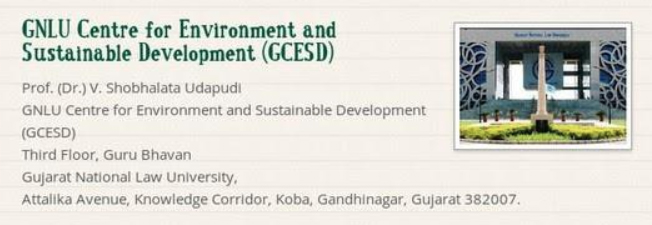With countries joining hands to end coal-use as part of decarbonising their economies in due course, India on Thursday made it clear that the steps were being taken in the country to "decouple the Indian energy system from carbon in the long run" but poverty eradication remained its "overriding priority" to ensure housing, electricity and food security for all". India, however, underlined that it has taken "ambitious targets" in its climate actions pledge under the Paris Agreement and the country is "on path for achieving those.
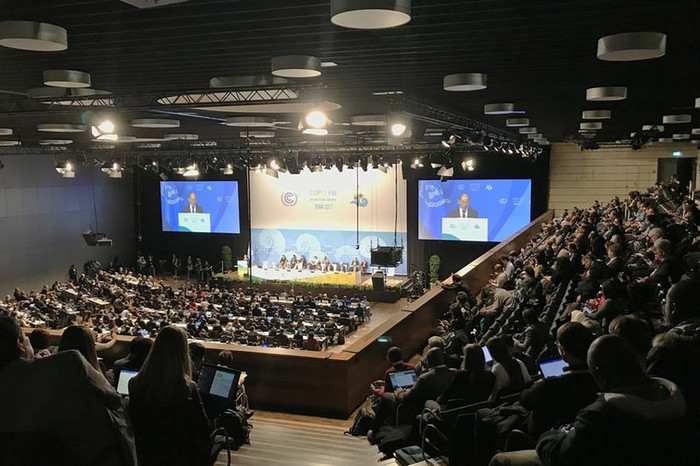
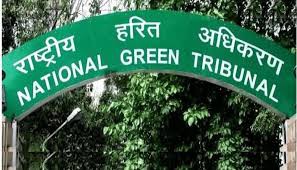
The National Green Tribunal on Wednesday issued notices to Uttar Pradesh, Uttarakhand, Haryana and Punjab governments over improper disposal and burning of bio-medical waste in the states. Putting an immediate ban on the burning of bio-medical waste, the green tribunal directed the four states to file their replies within one week. The case will now come up for hearing in the first week of December. The green panel headed by Justice Swatanter Kumar also said action would be taken against officials of the district concerned, in case bio-medical is found being burnt, thrown in the open or sold to scrap dealers.
The four states will also have to provide information about hospitals inspected for violation of the Bio-Medical Waste Management Rules, 2016.
Taking forward the concerns of developing countries, the BASIC nations - Brazil, South Africa, India and China - have resolved to take up all the critical issues, including access to finance and technology, to its logical conclusion during the remaining days of the ongoing UN climate conference (COP23) so that it could prepare a ground for implementation of the Paris Agreement.


The roads of Shimla are choked due to which visitors and residents are stuck in traffic jams for hours together. There has been continuous and persistent degradation of environment and ecology in that area raising serious environmental concerns,” observed the NGT. Even the future constructions in the areas beyond core areas and green-belt that also covers Shimla’s heritage zone have been prohibited.The tribunal also imposed ban on regularization of illegal and unauthorised constructions. It proposed a heavy penalty and environmental compensation for regularisation of such buildings/floors.
The pollution advisory issued in Ahmedabad on Wednesday is a wake-up call for Rajkot too. The city, which has been winning accolades for its green energy initiatives, is still struggling to process the piling mount of garbage at Nakrawadi village near the city. Daily, nearly 600 tonnes of solid waste generated in the city is dumped at Nakrawadi site, which has already made living a hell for several villages nearby.
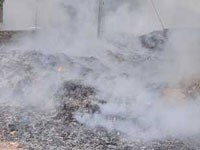

UN negotiations on implementing the Paris climate change agreement wrap up Friday after two weeks of talks that were slowed down by the United States defending the use of fossil fuels. The November 6-17 conference is the first of the UN's climate body since President Donald Trump announced in June that the US will withdraw from the agreement championed by his predecessor Barack Obama.
The Delhi High Court Thursday asked the Delhi Pollution Control Committee (DPCC) and other agencies how the amount collected as ‘green cess’ from commercial vehicles entering the capital will be spent to mitigate air pollution. The court noted that Rs 700 crore was collected as “green cess”, of which, as per rules, 25 per cent was provided to Central Pollution Control Board (CPCB). It also asked the public agencies, MCDs, DPCC and the Delhi government to indicate the most appropriate methods to ensure a coordinated approach in dealing with polluting construction sites under the Environment Protection Act.
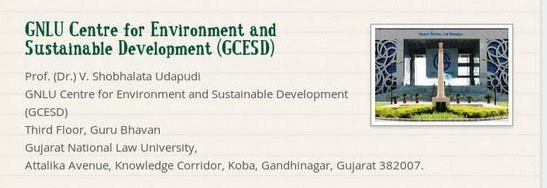
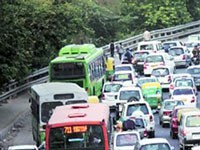
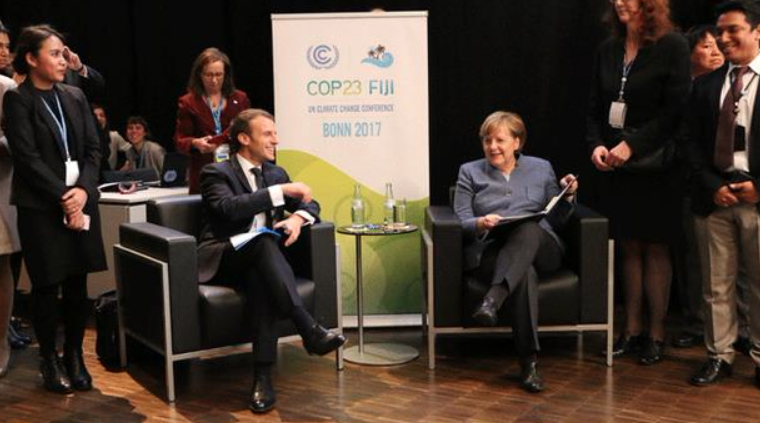
Despite a few victories, the UN’s annual climate change conference ended without achieving its goals or injecting a sense of much needed urgency.Over 20,000 people from around the world descended on Bonn, Germany at the beginning of November for the 23rd Conference of the Parties (COP23). The conference set out to develop a rule book for implementing the landmark Paris Agreement. Though the deadline for its completion is next year’s COP in Poland, many noted that not enough was achieved this year. Despite slow progress, COP23 did not end without small victories.Countries agreed to review progress on reducing emissions in 2018 and 2019, as well as conduct assessments on climate finance in 2018 and 2020.
It’s been dry in Isavai on the island of Aniwa for last couple of years –ever since Tropical Cyclone Pam tore through Vanuatu in March 2015, leaving an El Nino-induced drought in its wake. A dry phase is bad news for farmers anywhere, but in Aniwa, where there is no constant water source and the only water supply comes almost exclusively from harvesting rain into tanks, it’s disastrous. Without water, crops can’t be irrigated. Without irrigation, crops are much more likely to fail. And when crops fail, food becomes more scarce, nutrition decreases, and health declines.


Prime Minister Narendra Modi's Smart Cities Mission aims to modernise 100 cities by 2020 with high-speed internet, uninterrupted power andwater supply, efficient public transport and living standards comparable to Europe. But such efforts must include a long-term plan to control pollution, said Anumita Roy Chowdhury, executive director at research and advocacy group, Centre for Science and Environment. Tens of thousands of people living in rural areas migrate to the cities every day, seeking better economic opportunities. Many end up in slums and informal settlements, and are particularly vulnerable to the pollution.
The proposed Inland Waterways terminal at Haldia, West Bengal, has been accorded Coastal Regulatory Zone (CRZ) clearance subject to specific conditions regarding protection of Gangetic dolphins and marine biodiversity.The Rs 516 crore project partially falls under the CRZ-IB, CRZ-II and CRZ-IVB zone and according to the EAC, the terminal's construction will have impacts on aquatic flora and water quality. In its clearance, the environment ministry has directed that 2% of the project cost or 10.32 crore has to be spent for marine and coastal biodiversity protection and conservation measures by the Inland Waterways Authority of India (IWAI). West Bengal Coastal Zone Management Authority has to monitor implementation of these measures every six months.


As the summit of governments known as COP23 reached its conclusion in Bonn, Germany this week,two clear alliances have emerged in the global energy landscape. One of them, the International Solar Alliance, was launched in Paris and is all set to become a legal entity. The other, an alliance to phase out coal , was announced on Dec. 16 in one of the biggest developments at COP23. Jointly launched by Britain and Canada –both developed countries –the alliance already has 20 members, including Italy, France, Mexico, Norway, El Salvador and several U.S. states.
The Supreme Court on Wednesday refused to modify the Centre’s notification banning the use of furnace oil and pet coke in Uttar Pradesh, Rajasthan and Haryana and asked the NTPC, which was seeking relaxation till it switches over to alternative fuel, to approach the government.The top court said this while hearing a plea by National Thermal Power Corporation (NTPC) Ltd which said it was using only 0.03 per cent furnace oil in its plants and “immediate stoppage” of its use would lead to “black out” as the corporation was providing electricity to various states.


The Centre on Thursday promulgated the Indian Forest (Amendment) Ordinance, 2017, to exempt bamboo grown in non-forest areas and “dispensing with the requirement of felling/transit permit for its economic use”. On Wednesday, the Cabinet had approved the promulgation of the ordinance on amendment of Section 2 (7) of the Indian Forest Act, 1927 in this regard.A major objective of the amendment is to promote cultivation of bamboo in non- forest areas to achieve twin objectives of increasing the income of farmers and also increasing the green cover of the country.
